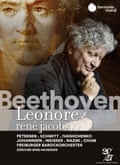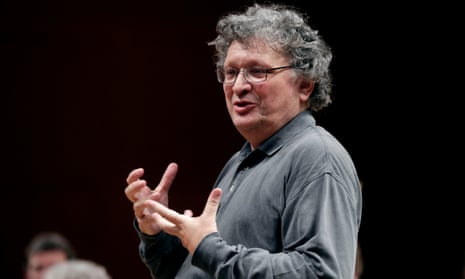As we know it today, Fidelio, Beethoven’s only opera, was first performed in 1814. But it had begun life in 1805 as Leonore, when its premiere in Vienna, to an audience largely made up of French officers from Napoleon’s occupying army who could not understand any of the German text, had been a disaster. Beethoven revised the score immediately, cutting swathes and recasting the original three acts into two, but he was still unhappy with the result, which was withdrawn after two performances the following year. When it emerged again, eight years later, both the music and the words had been even more substantially altered, and this time the premiere was a huge success.

Yet though Fidelio is now a central part of the operatic repertory, some insist that the 1805 Leonore is the better, more dramatically convincing work. One of those is John Eliot Gardiner, who in 1997 conducted one of the three previous recordings of the original score, and another is René Jacobs, who is responsible for this latest one. According to Jacobs, not only does the 1805 three-act version have the better, more musically daring overture (now known in the concert hall as Leonore No 2) but Beethoven’s revisions and compressions removed first-rate music from the score, notably an entire aria in the first act for Rocco, and a duet for Leonore and Marzelline in the second, doing severe damage to the work’s dramaturgy.
Jacobs’ recording, taken from a live performance in Paris a year ago, makes his case for him eloquently enough. His tempi are generally on the fast side, though the superb, crisp playing of the period-instrument Freiburg Baroque Orchestra ensures they never seem too hectic. But though the dialogue has been rewritten and apparently abridged, there still seems an awful lot of it, with the spoken voices just a bit too far forward in the stereo picture and sound effects rather self-consciously prominent, too. And if the cast, led by Marlis Petersen as Leonore and Maximilian Schmitt as Florestan, does not include any voices to compare to those on some of the great Fidelio recordings of the last century, their general lightness and flexibility puts the opera more convincingly into its proper context.
As Jacobs and his singers present it, this is Beethoven’s opera as a descendant of the 18th-century Singspiel tradition, especially that of Mozart’s Entführung and Zauberflöte. Leonore may not be the great celebration of political freedom that later generations have valued in Fidelio, but historically perhaps it’s something more interesting.

Comments (…)
Sign in or create your Guardian account to join the discussion